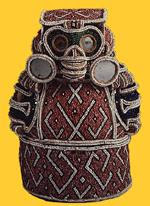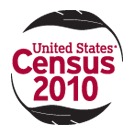Washington D.C. (UCTP Taino News) - Damon Corrie, the sometimes controversial Barbados born Indigenous Rights activist of Guyanese Arawak descent was 1 of 30 persons selected by the Organization of American States (OAS) to once again to attend the current 11th session (Dec 6-12) of negotiations on the draft American Declaration on the Rights of Indigenous Peoples; being held in the Colon Room at the OAS headquarters in Washington DC.
Hard negotiations between the Indigenous representatives and the diplomatic representatives of all the member states of the OAS will be held from December 9-12th.
Of the 30 Indigenous representatives from around the Hemisphere present so far, only 2 are from the Caribbean (Barbados and Puerto Rico) and both are delegates for the United Confederation of Taino People.
The other countries currently represented in the Indigenous Caucus are as follows Canada (4), USA (7), Guatemala (2), Honduras (1), Nicaragua (1), Peru (1), Argentina (2), Ecuador (1), Paraguay (1), Colombia (1), Costa Rica (1), Bolivia (1) and El Salvadsor (4) - with additional representatives from the USA, Panama, Dominica and St. Vincent expected.
On day 1 the Caucus voted for 4 Co-Chairs to head the Indigenous Caucus and the un-opposed nominated candidates were June Llorenzo of the USA (North America co-chair), Jaime Arias of Colombia (South America co-chair), Jose Carlos Morales of Costa Rica (Central America co-chair) and Damon Corrie of Barbados (Caribbean co-chair). Corrie was nominated by respected Taino elder Naniki Reyes Ocasio from Puerto Rico. He agreed to act as Caribbean co-chair only until Carib Chief Charles Williams of Dominica arrives.
Chair of the OAS Working Group, Ambassador Jorge Reynaldo Cuadros of Bolivia gave a very inspirational opening address to the Caucus. The Ambassador reminded the indigenous representatives gathered that "Bolivia should be viewed as the motherland of the Indigenous Peoples of the Western Hemisphere because Bolivia - with the only Amerindian head of state and government in the entire Western Hemisphere - is quite literally the sharp end of the spear in the Amerindian rights struggle for equity in the Americas".
In November 2008 President Evo Morales of Bolivia became the first Amerindian Head of State to have ever addressed the OAS.
Leonardo Crippa and Armstrong Wiggins of the Indian Law Resource Center presented evidence to the gathering that attested to the fact that as Global conflict over scarce natural resources escalates, indigenous peoples have increasingly become targets of human rights violations associated with efforts to confiscate, control, or develop their lands, territories and natural resources. Many countries in the OAS project a public image of respect for human rights while permitting and committing human rights violations at home.
The representatives were also reminded that the process to achieve the American declaration has been on-going for over 19 years, and the UN declaration took almost 21 years to finally be achieved.
There is a strong sense of hope that the incoming administration of President-elect Barack Obama will enact real change such as finally ratifying the United Nations Declaration on the Rights of Indigenous Peoples, which is something the outgoing Bush administration strongly opposed.
UCTPTN 12.08.2008










No comments:
Post a Comment